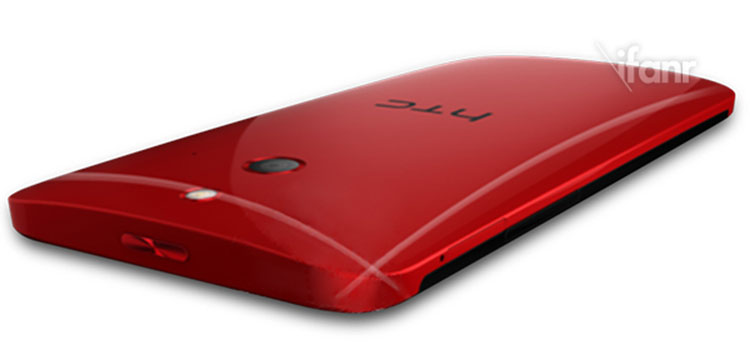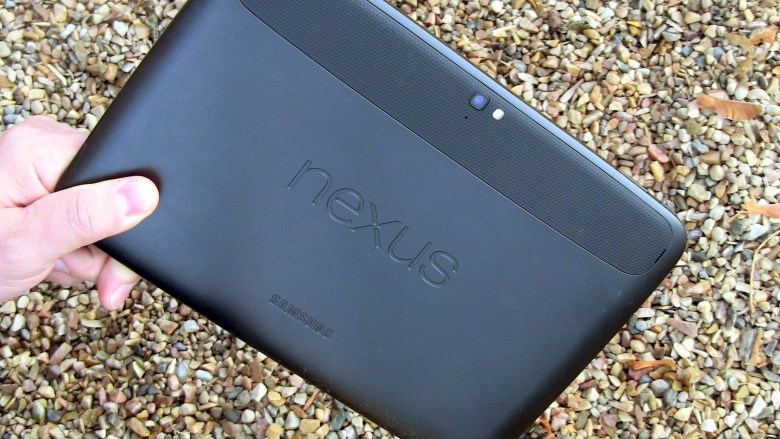HTC needs the Nexus 9 more than Google does

HTC appears to finally be getting the love it deserves in the mobile space.
Its two most high-end handsets from the last two years received nothing but praise from the press and consumers. The One M7 won handfuls of awards and the One M8 is slated to do just the same. And, finally, after a long stint of hemorrhaging money, the company has turned a profit.
Just last month, we had cause for concern. HTC’s financials weren’t looking so great. Revenue was down and the company was still losing money.
However, we learned earlier today that HTC has finally started to turn things around. In its Q2 earnings, it was revealed that not only did HTC hit its estimates, it turned a profit of $75.5 million. Its revenues are up four percent from May (compared to being down 23 percent in June last year).
Much of this turnaround can likely be accredited to the One M8, which has received great reviews across the board and has proven in my short time with the phone to be a spectacular – if not the best, in my humble opinion – choice in smartphone for the first half of 2014.
Still, our own Stephen Schenck says it most succinctly:
“While this is all very promising, HTC’s not necessarily out of the woods just yet; last year saw July sales drop even lower than June’s, and began a slump that would last throughout the rest of the year. If HTC really wants to prove that it’s turned itself around, these next few months are going to be key.”
It’s a tough road ahead, especially with an attention-grabbing dual iPhone launch supposedly happening in the fall. Other Android heavyweights are sure to take from the One M8′s attention. The LG G3 is approaching its U.S. launch, we keep hearing more and more about the super high-end Galaxy F, the fourth-generation Galaxy Note handset is allegedly slated for this fall, Sony should have another flagship before the end of the year, and we should see another Nexus handset in November, give or take.
 HTC and the One M8 are up against some serious adversity and competition, and we’re just barely halfway through this year. It’s an uphill battle from here.
HTC and the One M8 are up against some serious adversity and competition, and we’re just barely halfway through this year. It’s an uphill battle from here.
The thing is, there are only a handful of HTC devices on the horizon that we actually (think we) know of. There’s reason to believe HTC will once again treat its flagship to a max variant; we’ve seen renders and heard countless rumors of the One M8 Ace; theOne Remix for Verizon has hit the rumor mill a time or two, as well as a new Butterfly variant; and theNexus 9.
Let’s focus on the latter device for a moment, though.
Codenamed Volantis, the device is still a huge mystery. Currently, it’s rumored to have a 8.9-inch display with a resolution of 2,048 by 1,440. It will supposedly come with a 64-bit NVIDIA Tegra K1 chip, 8-megapixel rear camera, 2GB RAM, 16 or 32GB of storage, and it’s believed to retail with a starting price of $399.
Of late and until recently, the fate of the Nexus brand has been up in the air. In light of Android Silver rumors, many suspected the Nexus program would be shelved – that Android Silver would be some strange mashup of Nexus and Google Play edition devices.
Fortunately, Google’s own David Burke, the Nexus program manager, put those rumors to rest, tellingArs Technica Nexus “can’t ever go away.”
Amid all the rumors, it was comforting to hear that, not only because Google needs the Nexus program, but also because Google is long overdue for some new Nexus hardware – not necessarily phones, as the Nexus 5 was launched in November. Tablets, however, are a different story. The original Nexus 7 was announced in June 2012 and launched the following month. The Nexus 10 was announced the following October and released in November. And the Nexus 7 (2013) was announced and launched last July.
That means it’s been nearly one whole year since we’ve seen any new Nexus hardware. And as for full-sized Nexus tablets, it’s been nearly 20 months. Despite all the time that has passed and the sheer number of second-generation Nexus 10 rumors, there has been no official word on a new full-size Nexus tablet. Nor has there been anything noteworthy said about an update to the Nexus 7.
Point blank, the Nexus program needs new tablet hardware. And HTC arguably needs the Nexus 9worse than Google does. How is that possible? Better yet, why?
 HTC made the very first Nexus smartphone, the Nexus One. To this day, it’s one of the most beautiful smartphones ever made, much less the most beautiful Nexus ever made. HTC busted into the Nexus scene with a killer device (even if sales didn’t do so well), then it disappeared from the Nexus project indefinitely. Despite rumors for the last four and a half years, HTC has not made another Nexus phone. Sure, it’s made several Developer Edition handsets, it’s provided customers with an official bootloader unlocking tool, and it’s even made some Google Play edition hardware. But let’s be honest, Google Play edition and Developer Edition phones are not even in the same realm as Nexus hardware.
HTC made the very first Nexus smartphone, the Nexus One. To this day, it’s one of the most beautiful smartphones ever made, much less the most beautiful Nexus ever made. HTC busted into the Nexus scene with a killer device (even if sales didn’t do so well), then it disappeared from the Nexus project indefinitely. Despite rumors for the last four and a half years, HTC has not made another Nexus phone. Sure, it’s made several Developer Edition handsets, it’s provided customers with an official bootloader unlocking tool, and it’s even made some Google Play edition hardware. But let’s be honest, Google Play edition and Developer Edition phones are not even in the same realm as Nexus hardware.
What’s more is HTC abandoned the tablet market. It made the Flyer and the Jetstream. After some poor sales, it never released another tablet.
Consumers – especially Android enthusiasts – have been begging for HTC to make another Nexus, and albeit not nearly as many, some have been dying for another HTC tablet. If we can’t get an HTC-made Nexus phone, a 9-inch tablet is definitely the next best thing.
HTC is on a serious upswing here. It clearly knows how to speak to consumers and how to create compelling products. The company has clearly learned a lot over the last half decade. As such, it’s time HTC takes another stab at both the tablet and Nexus product lines. Why not knock out both in one fell swoop?
A new Nexus may not pad the pocket any, but it could help restore a lot of faith in a company that hasn’t been doing so well in recent years (that is, until recently). Timing is everything, and if the Nexus 9 were a hit right on the heels of the One M8, it could work wonders for HTC’s market share and, more importantly, its mind share.




No comments:
Post a Comment